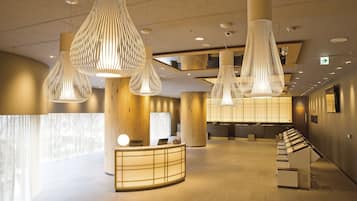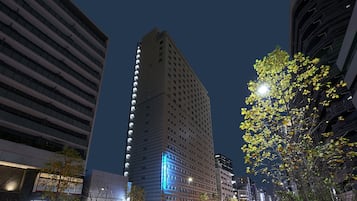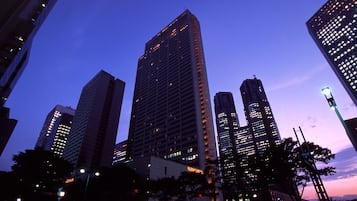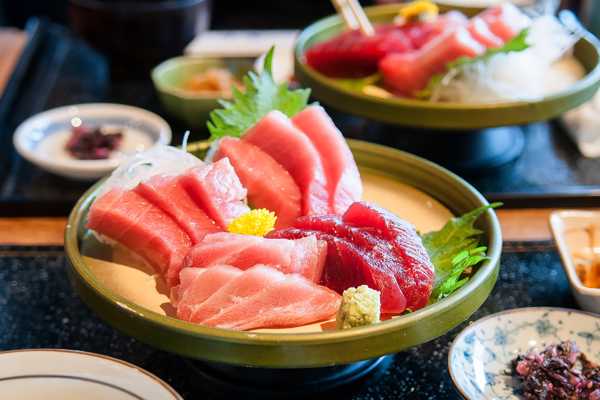Cherry blossom is widely known as Japan’s national flower, and there are plenty of places to see it in full bloom throughout the country. It’s said that the history goes back to the time of Japan’s oldest record, called kojiki or the Records of Ancient Matters. Cherry trees were treated as sacred in the time of Japan’s oldest anthology of poems (manyoshu).
Today, there are more than 200 varieties of cherry trees in Japan – the most common and popular type is the Yoshino cherry tree. Weeping cherry trees and double-flowered cherry trees also add color to the landscape, especially in spring. Check out our guide to the best cherry blossom festivals and viewing spots in Japan.
- 1
Hirosaki Park
Aomori Prefecture

- Couples
- Families
- Group
Hirosaki Park is filled with so many cherry blossoms that the sky is hardly visible. The peak cherry blossom season is from late-April, which coincides with the Hirosaki Cherry Blossom Festival. There are about 2,600 cherry trees of about 50 types, including Kasumizakura, Yoshino, double-flowered, and weeping cherry trees. The park has more than 400 Yoshino cherry trees that are over 100 years old – the oldest tree is near the Inner East Gate, which is over 135 years old.
You can expect to see massive, full cherry blossoms in spring. The moat surrounding Hirosaki Castle becomes a tunnel of blooming pink and white flowers. You can also see them from a sightseeing boat. The view of fallen petals filling the water’s surface and flowing downstream is quite remarkable.
Location: 1 Shimoshiroganecho, Hirosaki, Aomori 036-8356, Japan
Phone: +81 (0)172-33-8733
Map - 2
Chidorigafuchi Green Way
Tokyo

- Couples
- Families
- Group
Cherry blossom season in Tokyo is from late March to early April, which is also the beginning of the new fiscal year. The view from Chidorigafuchi Green Way, a 700-meter-long path next to a moat on the west side of the Imperial Palace, is one of the best cherry blossom viewing spots in Tokyo. It's within a 5-minute walk from Metro Kudanshita Station, attracting locals to stop by after work.
There are 260 trees along the path, along with 330 trees in Kitanomaru Park, just on the opposite side of the moat. The scenery of cherry blossoms in full bloom is pretty spectacular. There are also night illuminations during cherry blossom season, and you can relax and enjoy these sights on a rented boat.
Location: 2 Chome Kudanminami, Chiyoda City, Tokyo 102-0074, Japan
Phone: +81 (0)3-3556-0391
Map - 3
Goryokaku Park
Hokkaido

- Couples
- Families
- Group
A typical cherry blossom viewing spot in Hakodate is Goryokaku Park, which has fully bloomed flowers in early May. If you climb to the top of Goryokaku Tower, you can see the star-shaped fortress ruins and cherry blossoms around 90 meters above the ground. You’ll be stunned by the contrast between the blue sky reflected on the moat and the surrounding pink cherry blossoms.
You can also enjoy cherry blossom by taking a walk in the park or with a Jingisukan barbecue and beer during the day. About 400 lanterns are hung under the trees at night. You can ride a tram and enjoy the cityscape of Hakodate, getting off at Goryokaku-Koen-Mae Station to reach Goryokaku Park.
Location: 44-2 Goryokakucho, Hakodate, Hokkaido 040-0001, Japan
Open: Daily from 5 am to 6 pm
Phone: +81 (0)138-31-5505
Map - 4
Cherry blossom passage at the Mint Museum
Osaka

- Couples
- Families
- Group
The cherry blossom passage at the Mint Museum has been a spring tradition in Osaka for over 100 years, since the Meiji period. A road within the museum's premise, which isn’t normally accessible, is open to the public for a week during the cherry blossom season. There are more than 130 types of cherry trees gathered from all over Japan lining this 560-meter-long road.
Rare varieties include Otemari, with many light pink flowers blooming densely at the tip of the branch, and Gyoiko, which has yellow-green petals with vertical bright red lines. You can also spot Gozama no Nioi, a type of cherry tree with fragrant white flowers from the banks of Arakawa River. Most of the trees are late-blooming and double-flowered cherry trees, so the best time to come here is during mid-April. Each tree has a nametag, so you can spot the differences for yourself.
Location: 1 Chome-1-79 Tenma, Kita Ward, Osaka, 530-0043, Japan
Open: Daily from 9 am to 4.45 pm (hours vary by season)
Phone: +81 (0)6-6351-5361
Map - 5
Omura Sakura of Ninnaji Temple
Kyoto

- Couples
- Group
- History
Omuro Sakura is a late-blooming cherry blossom tree that comes into full bloom after the Yoshino cherry blossoms have fallen in Kyoto. This historical tree has been popular with the common people since the Edo period. The variety is known as Omuro Ariake, and it’s about 2 to 3 meters high. It’s also called Otafuku Sakura.
There are about 200 Omuro Sakura trees in Ninnaji Temple, a head temple of the Omuro School of the Shingon sect. The temple was designated as a World Heritage Site in 1994. You can feel the history and culture of Kyoto when you look at the view of Omuro Sakura in full bloom against the 5-storey pagoda.
Location: 33 Omuroouchi, Ukyo Ward, Kyoto, 616-8092, Japan
Open: Daily from 9 am to 4.30 pm
Phone: +81 (0)75-461-1155
Mapphoto by Oren Rozen (CC BY-SA 4.0) modified
- 6
Saigyo Modoshi No Matsu Park
Miyagi Prefecture

- Couples
- Families
- Group
Saigyo Modoshi No Matsu Park is a hilltop spot overlooking Matsushima Bay. Japan's cherry blossom season is the best time to visit as there are over 260 cherry trees throughout the park. It gets very crowded with tourists in late April. The view of Matsushima Bay from the observation deck over the cherry blossoms in front of Byakui Kannon Temple is outstanding.
Go just before sunrise to see the changing scenery of cherry blossoms and Matsushima Bay. The beauty of the cherry blossoms, sea, and pine trees makes for a special scene found only at Saigyo Modoshi No Matsu Park.
Location: Inuta-2 Matsushima, Miyagi District, Miyagi 981-0213, Japan
Map - 7
Fuji Kawaguchiko Cherry Blossom Festival
Yamanashi Prefecture

- Couples
- Families
- Group
The Fuji Kawaguchiko Cherry Blossom Festival takes place around a quiet lake, with cherry blossoms in full bloom and the magnificent Mount Fuji in the background. Lake Kawaguchi is one of the Fuji 5 Lakes near Mount Fuji – it's designated as part of the Fuji-Hakone-Izu National Park. There are a lot of cherry trees around Lake Kawaguchi.
A highlight is a walking trail from Kawaguchiko Enkei Hall on the north shore of Lake Kawaguchi to Lake Kawaguchi Ohashi Bridge. There are many photogenic spots along the trail, particularly the view of about 200 Yoshino cherry trees along a 1-km-long stretch of the lakeshore with Mount Fuji in the background.
Location: Fujikawaguchiko, Minamitsuru District, Yamanashi, Japan
Map - 8
Kawazu Cherry Blossom Festival
Shizuoka Prefecture

- Couples
- Families
- Group
Kawazu Sakura is an early blooming cherry tree in Kawazu, which starts blooming from early February every year. It has larger flowers and a deeper pink color compared to the Yoshino cherry tree. It keeps blooming for a month, so it stays pretty for quite a long time.
You can appreciate these sakura trees at the annual Kawazu Cherry Blossom Festival. About 8,000 Kawazu Sakura cherry trees dot the town, mainly around the Kawazu River. The rows of pink cherry blossom are really striking from morning to night, thanks to lanterns illuminating the trees. You can walk to Hosen Bridge (Kawazu-ideyu Bridge) if you want to take your time to enjoy the cherry blossoms.
Location: Kawazu, Kamo District, Kawazu, Shizuoka, Japan
Map - 9
Tsuruga Castle
Fukushima Prefecture

- Couples
- Group
- History
Tsuruga Castle (Wakamatsu Castle or Aizu-Wakamatsu Castle) is a reconstructed historical site in Aizuwakamatsu, Fukushima. It's a beautiful castle with a white tower and red roof tiles. You can enter the tower to see displays of its history. Tsuruga Castle is also famous as a cherry blossom viewing spot in Japan.
About 1,000 cherry trees including Yoshino cherry trees, double-flowered cherry trees, and weeping cherry trees bloom one after another. Nighttime illuminations are also held for a certain period in spring. This beautiful cherry blossom viewing spot is one of the largest in eastern Japan. Bring your camera to take beautiful photos of the cherry blossoms with Tsuruga Castle in the background.
Location: 1-1 Otemachi, Aizuwakamatsu, Fukushima 965-0873, Japan
Open: Daily from 8.30 am to 5 pm
Phone: +81 (0)242-27-4005
Map - 10
Ooka River
Yokohama

- Couples
- Families
- Group
Ooka River passes through Yokohama and flows down to Yokohama Port. The river's promenade, located near Sakuragi Station, has about 500 cherry trees. Many people can’t help but stop and take a photo of the view of Yoshino cherry blossoms that cover the Ooka River on both sides.
Ookagawa Sakura Festival takes place from late March to late April. Every year, a variety of stalls line the river, so you can enjoy the festive mood while appreciating the cherry blossoms. About 2,500 paper lanterns are lit up on the riverside in the evenings – the scenery of illuminated cherry blossoms and lanterns reflected on the river surface is very memorable.
Location: Hinodecho, Naka Ward, Yokoham, Kanagawa, Japan
Mapphoto by Space key (CC BY-SA 3.0) modified


















